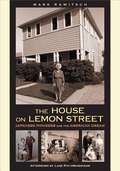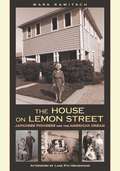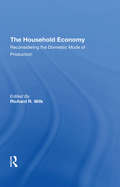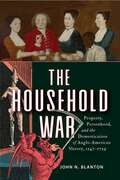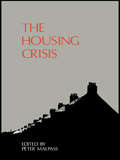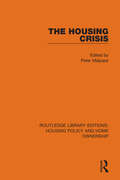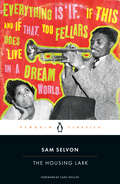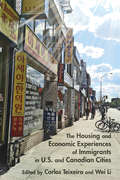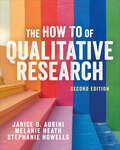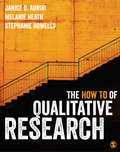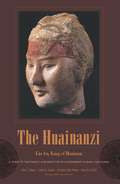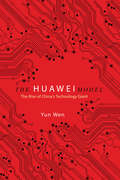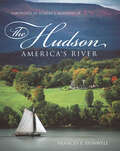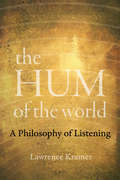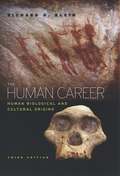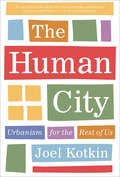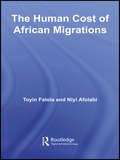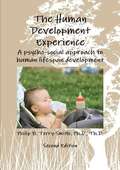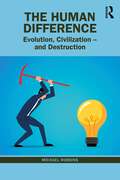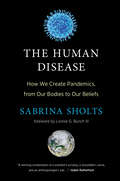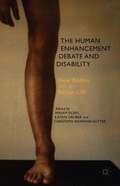- Table View
- List View
The House on Lemon Street
by Mark RawitschIn 1915, Jukichi and Ken Harada purchased a house on Lemon Street in Riverside, California. Close to their restaurant, church, and children's school, the house should have been a safe and healthy family home. Before the purchase, white neighbors objected because of the Haradas' Japanese ancestry, and the California Alien Land Law denied them real-estate ownership because they were not citizens. To bypass the law Mr. Harada bought the house in the names of his three youngest children, who were American-born citizens. Neighbors protested again, and the first Japanese American court test of the California Alien Land Law of 1913--The People of the State of California v. Jukichi Harada--was the result. Bringing this little-known story to light, The House on Lemon Street details the Haradas' decision to fight for the American dream. Chronicling their experiences from their immigration to the United States through their legal battle over their home, their incarceration during World War II, and their lives after the war, this book tells the story of the family's participation in the struggle for human and civil rights, social justice, property and legal rights, and fair treatment of immigrants in the United States. The Harada family's quest for acceptance illuminates the deep underpinnings of anti-Asian animus, which set the stage for Executive Order 9066, and recognizes fundamental elements of our nation's anti-immigrant history that continue to shape the American story. It will be worthwhile for anyone interested in the Japanese American experience in the twentieth century, immigration history, public history, and law.
The House on Lemon Street: Japanese Pioneers and the American Dream (Nikkei in the Americas)
by Mark RawitschIn 1915, Jukichi and Ken Harada purchased a house on Lemon Street in Riverside, California. Close to their restaurant, church, and children's school, the house should have been a safe and healthy family home. Before the purchase, white neighbors objected because of the Haradas' Japanese ancestry, and the California Alien Land Law denied them real-estate ownership because they were not citizens. To bypass the law Mr. Harada bought the house in the names of his three youngest children, who were American-born citizens. Neighbors protested again, and the first Japanese American court test of the California Alien Land Law of 1913-The People of California v. Jukichi Harada-was the result. Bringing this little-known story to light, The House on Lemon Street details the Haradas' decision to fight for the American dream. Chronicling their experiences from their immigration to the United States through their legal battle over their home, their incarceration during World War II, and their lives after the war, this book tells the story of the family's participation in the struggle for human and civil rights, social justice, property and legal rights, and fair treatment of immigrants in the United States. The Harada family's quest for acceptance illuminates the deep underpinnings of anti-Asian animus, which set the stage for Executive Order 9066, and recognizes fundamental elements of our nation's anti-immigrant history that continue to shape the American story. It will be worthwhile for anyone interested in the Japanese American experience in the twentieth century, immigration history, public history, and law. This publication was made possible with the support of Naomi, Kathleen, Ken, and Paul Harada, who donated funds in memory of their father, Harold Shigetaka Harada, honoring his quest for justice and civil rights. Additional support for this publication was also provided, in part, by UCLA's Aratani Endowed Chair as well as Wallace T. Kido, Joel B. Klein, Elizabeth A. Uno, and Rosalind K. Uno.
The Household Economy: Reconsidering The Domestic Mode Of Production
by Richard R WilkThis book focuses on the economic decisions that must be made in the household. It states that domestic activities are commonly grouped into two primary types, one having to do with social reproduction, the other with the production and consumption of foods.
The Household War: Property, Personhood, and the Domestication of Anglo-American Slavery, 1547–1729
by John N. BlantonA bold reinterpretation of perennial debates over the origins and development of slavery in colonial English North AmericaThe Household War offers a bold reinterpretation of perennial debates over the origins and development of slavery in colonial English North America. John N. Blanton argues that the law and practice of slavery in the empire’s earliest American colonies were shaped by a tension between two competing definitions of the institution. One strand of thought, war-slavery ideology, claimed that the power of life and death transformed war captives into chattel slaves. The power to kill defined both war and slavery. But bringing war captives into enslavers’ private households was a dangerous proposition, and so a parallel “domestication” ideology emerged calling for limitations on the power of enslavers and the recognition of the enslaved as persons held to labor in a variant of English servitude.The Household War examines how the tensions between war-slavery and domestication ideologies, along with crucial political, economic, and cultural differences, shaped the development of slavery in Virginia and Massachusetts from their founding through 1729, creating distinct systems of bondage in England’s flagship mainland colonies. In Massachusetts, where a diversified and dynamic commercial economy afforded opportunities for mobility and access to material resources, the dominance of domestication ideology enabled enslaved people to negotiate their bondage, attain free status, and build free Black households and communities. Virginia, however, committed itself to war-slavery early in its development, with enslaved people defined as articles of property subject to enslavers’ power of life and death while the extreme inequality of plantation society made free Black household formation nearly impossible. Long before American independence highlighted their differences, then, Massachusetts and Virginia were already on distinct trajectories, laying the foundation for a future house divided on the question of slavery.
The Housing Crisis
by Mr David AlexanderFirst published in 1986. Routledge is an imprint of Taylor & Francis, an informa company.
The Housing Crisis
by Peter MalpassOriginally published in 1986 at a time when Britain was facing a major housing crisis, this book, containing much original research, examines the crisis and analyses the reasons for it, providing foundations for the construction of effective new policies. As relevant now as when it was first published the book discusses under investment in housing stock, in both the public and private sectors, renovation and maintenance and neglect of particular disadvantaged groups such as the elderly, the single homeless and those in low income groups.
The Housing Divide
by Samantha Friedman Emily RosenbaumThe Housing Divide examines the generational patterns in New York City's housing market and neighborhoods along the lines of race and ethnicity. The book provides an in-depth analysis of many immigrant groups in New York, especially providing an understanding of the opportunities and discriminatory practices at work from one generation to the next. Through a careful read of such factors as home ownership, housing quality, and neighborhood rates of crime, welfare enrollment, teenage pregnancy, and educational achievement, Emily Rosenbaum and Samantha Friedman provide a detailed portrait of neighborhood life and socio-economic status for the immigrants of New York. The book paints an important, if disturbing, picture. The authors argue that not only are Blacks—regardless of generation—disadvantaged relative to members of other racial/ethnic groups in their ability to obtain housing in high-quality neighborhoods, but that housing and neighborhood conditions actually decline over generations. Rosenbaum and Friedman's findings suggest that the future of racial inequality in this country will increasingly isolate Blacks from all other groups. In other words, the “color line” may be shifting from a line separating Blacks from Whites to one separating Blacks from all non-Blacks.
The Housing Lark (Penguin Modern Classics Ser.)
by Sam SelvonThe humorous yet poignant novel of West Indian migrant life in London that adds an iconic voice to the growing Caribbean canonA Penguin ClassicSet in London in the 1960's, when the UK encouraged its Commonwealth citizens to emigrate as a result of the post-war labor shortage, The Housing Lark explores the Caribbean migrant experience in the "Mother Country" by following a group of friends as they attempt to buy a home together. Despite encountering a racist and predatory rental market, the friends scheme, often comically, to find a literal and figurative place of their own. Will these motley folks, male and female, Black and Indian, from Trinidad and Jamaica, dreamers, hustlers, and artists, be able to achieve this milestone of upward mobility? Unique and wonderful, comic and serious, cynical and tenderhearted, The Housing Lark poses the question of whether their "lark," or quixotic idea of finding a home, can ever become a reality. Kittitian-British novelist and playwright Caryl Phillips contributes a foreword, while postcolonial literature scholar Dohra Ahmad provides a contextual introduction.
The Housing and Economic Experiences of Immigrants in U.S. and Canadian Cities
by Wei Li Carlos TeixeiraSince the 1960s, new and more diverse waves of immigrants have changed the demographic composition and the landscapes of North American cities and their suburbs. The Housing and Economic Experiences of Immigrants in U.S. and Canadian Cities is a collection of essays examining how recent immigrants have fared in getting access to jobs and housing in urban centres across the continent.Using a variety of methodologies, contributors from both countries present original research on a range of issues connected to housing and economic experiences. They offer both a broad overview and a series of detailed case studies that highlight the experiences of particular communities. This volume demonstrates that, while the United States and Canada have much in common when it comes to urban development, there are important structural and historical differences between the immigrant experiences in these two countries.
The How To of Qualitative Research
by Melanie Heath Janice Aurini Stephanie HowellsThis book will support you through each milestone of your research project with step-by-step instructions to doing qualitative research. Whatever type of data or data collection method you use, it will help you to navigate the nuts and bolts of qualitative research, from forming your research question to effectively writing up. Your roadmap and toolbox all in one, it helps you choose the best research tools for your project while managing any challenges you might encounter along the way. It includes: · Guidance on putting different research designs into practice, including using technology for interviews, data management, and unobtrusive research · Practical mapping tools, including checklists and quick tips · Online case studies and further reading to deepen your knowledge and expand your bibliography · Advice from experts on how to design and implement excellent qualitative research, including considerations of ethical issues. This book is the perfect companion for social sciences students carrying out their first qualitative research project.
The How To of Qualitative Research
by Melanie Heath Janice Aurini Stephanie HowellsThis book will support you through each milestone of your research project with step-by-step instructions to doing qualitative research. Whatever type of data or data collection method you use, it will help you to navigate the nuts and bolts of qualitative research, from forming your research question to effectively writing up. Your roadmap and toolbox all in one, it helps you choose the best research tools for your project while managing any challenges you might encounter along the way. It includes: · Guidance on putting different research designs into practice, including using technology for interviews, data management, and unobtrusive research · Practical mapping tools, including checklists and quick tips · Online case studies and further reading to deepen your knowledge and expand your bibliography · Advice from experts on how to design and implement excellent qualitative research, including considerations of ethical issues. This book is the perfect companion for social sciences students carrying out their first qualitative research project.
The How To of Qualitative Research: Strategies for Executing High Quality Projects
by Melanie Heath Janice Aurini Stephanie HowellsWith clear instructions for developing a research design and complementary research tools, this book is not about describing or theorizing qualitative methods, but how researchers actually create and execute these methods. Helping students conquer the practical issues many novice researchers face, the book provides them with the tools they need to answer critical questions such as: what are some ways to sample potential participants? how do I construct an interview schedule? should I be thinking of a single case study or a comparative study? what and how should I record in the field? what other sources of data should I consider?
The How To of Qualitative Research: Strategies for Executing High Quality Projects
by Melanie Heath Janice Aurini Stephanie HowellsWith clear instructions for developing a research design and complementary research tools, this book is not about describing or theorizing qualitative methods, but how researchers actually create and execute these methods. Helping students conquer the practical issues many novice researchers face, the book provides them with the tools they need to answer critical questions such as: what are some ways to sample potential participants? how do I construct an interview schedule? should I be thinking of a single case study or a comparative study? what and how should I record in the field? what other sources of data should I consider?
The Huainanzi: A Guide to the Theory and Practice of Government in Early Han China
by John S. Major Sarah A. Queen Andrew Seth Meyer Harold D. Roth An LiuCompiled by scholars at the court of Liu An, king of Huainan, in the second century B.C.E, The Huainanzi is a tightly organized, sophisticated articulation of Western Han philosophy and statecraft. Outlining "all that a modern monarch needs to know," the text emphasizes rigorous self-cultivation and mental discipline, brilliantly synthesizing for readers past and present the full spectrum of early Chinese thought. The Huainanzi locates the key to successful rule in a balance of broad knowledge, diligent application, and the penetrating wisdom of a sage. It is a unique and creative synthesis of Daoist classics, such as the Laozi and the Zhuangzi; works associated with the Confucian tradition, such as the Changes, the Odes, and the Documents; and a wide range of other foundational philosophical and literary texts from the Mozi to the Hanfeizi. The product of twelve years of scholarship, this remarkable translation preserves The Huainanzi's special rhetorical features, such as parallel prose and verse, and showcases a compositional technique that conveys the work's powerful philosophical appeal. This path-breaking volume will have a transformative impact on the field of early Chinese intellectual history and will be of great interest to scholars and students alike.
The Huawei Model: The Rise of China's Technology Giant (The Geopolitics of Information)
by Yun WenIn 2019, the United States' trade war with China expanded to blacklist the Chinese tech titan Huawei Technologies Co. Ltd. The resulting attention showed the information and communications technology (ICT) firm entwined with China's political-economic transformation. But the question remained: why does Huawei matter? Yun Wen uses the Huawei story as a microcosm to understand China's evolving digital economy and the global rise of the nation's corporate power. Rejecting the idea of the transnational corporation as a static institution, she explains Huawei's formation and restructuring as a historical process replete with contradictions and complex consequences. She places Huawei within the international political economic framework to capture the dynamics of power structure and social relations underlying corporate China's globalization. As she explores the contradictions of Huawei's development, she also shows the ICT firm's complicated interactions with other political-economic forces. Comprehensive and timely, The Huawei Model offers an essential analysis of China's dynamic development of digital economy and the global technology powerhouse at its core.
The Hudson: America's River
by Frances F. Dunwell&“A commanding and inspiring biography of a river that gave rise to an art movement, progressive social quests, [and] landmark environmental cases.&” —Booklist (starred review) Includes maps, photos, and illustrations Frances F. Dunwell presents a rich portrait of the Hudson and of the visionary people whose deep relationship with the river inspired changes in American history and culture. Lavishly illustrated with color plates of Hudson River School paintings, period engravings, and glass plate photography, The Hudson captures the spirit of the river through the eyes of its many admirers. It reveals the crucial role of the Hudson in the shaping of Manhattan, the rise of the Empire State, and the trajectory of world trade and global politics, as well as the river&’s influence on art and architecture, engineering, and conservation. &“A story of interaction between people and the environment and a story of continuing inspiration and renewal.&” —Library Journal
The Huguenots of Paris and the Coming of Religious Freedom, 1685-1789
by David GarriochHow did the Huguenots of Paris survive, and even prosper, in the eighteenth century when the majority Catholic population was notorious for its hostility to Protestantism? Why, by the end of the Old Regime, did public opinion overwhelmingly favour giving Huguenots greater rights? This study of the growth of religious toleration in Paris traces the specific history of the Huguenots after Louis XIV revoked the Edict of Nantes in 1685. David Garrioch identifies the roots of this transformation of attitudes towards the minority Huguenot population in their own methods of resistance to persecution and pragmatic government responses to it, as well as in the particular environment of Paris. Above all, this book identifies the extraordinary shift in Catholic religious culture that took place over the century as a significant cause of change, set against the backdrop of cultural and intellectual transformation that we call the Enlightenment.
The Hum of the World: A Philosophy of Listening
by Lawrence KramerThe Hum of the World is an invitation to contemplate what would happen if we heard the world as attentively as we see it. Balancing big ideas with playful wit and lyrical prose, this imaginative volume identifies the role of sound in Western experience as the primary medium in which the presence and persistence of life acquire tangible form. The positive experience of aliveness is not merely in accord with sound, but inaccessible, even inconceivable, without it. Lawrence Kramer’s poetic book roves freely over music, media, language, philosophy, and science from the ancient world to the present, along the way revealing how life is apprehended through sounds ranging from pandemonium to the faint background hum of the world. Easily moving from reflections on pivotal texts and music to the introduction of elemental concepts, this warm meditation on auditory culture uncovers the knowledge and pleasure made available when we recognize that the world is alive with sound.
The Human Career: Human Biological and Cultural Origins
by Richard G. KleinSince its publication in 1989, The Human Career has proved to be an indispensable tool in teaching human origins. This substantially revised third edition retains Richard G. Klein’s innovative approach while showing how cumulative discoveries and analyses over the past ten years have significantly refined our knowledge of human evolution.Klein chronicles the evolution of people from the earliest primates through the emergence of fully modern humans within the past 200,000 years. His comprehensive treatment stresses recent advances in knowledge, including, for example, ever more abundant evidence that fully modern humans originated in Africa and spread from there, replacing the Neanderthals in Europe and equally archaic people in Asia. With its coverage of both the fossil record and the archaeological record over the 2.5 million years for which both are available, The Human Career demonstrates that human morphology and behavior evolved together. Throughout the book, Klein presents evidence for alternative points of view, but does not hesitate to make his own position clear.In addition to outlining the broad pattern of human evolution, The Human Career details the kinds of data that support it. For the third edition, Klein has added numerous tables and a fresh citation system designed to enhance readability, especially for students. He has also included more than fifty new illustrations to help lay readers grasp the fossils, artifacts, and other discoveries on which specialists rely. With abundant references and hundreds of images, charts, and diagrams, this new edition is unparalleled in its usefulness for teaching human evolution.
The Human City: Urbanism for the Rest of Us
by Joel KotkinThe author of The Coming of Neo-Feudalism and The New Class Conflict challenges conventions of urban planning. Around the globe, most new urban development has adhered to similar tenets: tall structures, small units, and high density. In The Human City, Joel Kotkin―called &“America&’s uber-geographer&” by David Brooks of the New York Times―questions these nearly ubiquitous practices, suggesting that they do not consider the needs and desires of the vast majority of people. Built environments, Kotkin argues, must reflect the preferences of most people―even if that means lower-density development. The Human City ponders the purpose of the city and investigates the factors that drive most urban development today. Armed with his own astute research, a deep-seated knowledge of urban history, and a sound grasp of economic, political, and social trends, Kotkin pokes holes in what he calls the &“retro-urbanist&” ideology and offers a refreshing case for dispersion centered on human values. This book is not anti-urban, but it does advocate a greater range of options for people to live the way they want at all stages of their lives.Praise for The Human City &“Kotkin . . . presents the most cogent, evidence-based and clear-headed exposition of the pro-suburban argument . . . . In pithy, readable sections, each addressing a single issue, he debunks one attack on the suburbs after another. But he does more than that. He weaves an impressive array of original observations about cities into his arguments, enriching our understanding of what cities are about and what they can and must become.&” —Shlomo Angel, Wall Street Journal &“The most eloquent expression of urbanism since Jane Jacobs&’s The Death and Life of Great American Cities. Kotkin writes with a strong sense of place; he recognizes that the geography and traditions of a city create the contours of its urbanity.&” —Ronnie Wachter, Chicago Tribune
The Human Cost of African Migrations (African Studies #1)
by Toyin Falola Niyi AfolabiIn an era of globalization, population growth, and displacements, migration is now a fact of life in a constantly shifting economic and political world order. This book contributes to the discourse on the beneficiaries, benefactors, and the casualties of African displacement. While the few existing studies have emphasized economic motivation as the primary factor triggering African migration, this volume treats a range of issues: economic, socio-political, pedagogical, developmental, and cultural. Organized with a multidisciplinary thrust in mind, this book argues that any discussion of African migration, whether internal or external, must be conceived as only one aspect of a more complex, organic, and global patterning of "flux and reflux" necessitated by constantly shifting dynamics of world socio-economic, cultural, and political order.
The Human Development Experience (Second Edition): A Psycho-Social Approach to Human Lifespan Development
by Philip B. Terry-SmithThe human development experience is both a fascinating and somewhat troubling study. We are faced with some of the greatest challenges and celebrate some of the greatest accomplishments as we journey through our life time. This text offers a unique and targeted interpretation of human lifespan development based on a psycho-social approach to development.
The Human Difference: Evolution, Civilization – and Destruction
by Michael RobbinsFrom a multi-disciplinary perspective grounded in psychoanalysis, this book explores the manifestations of mind that distinguish humans from other species, culture, civilization, and destructiveness. Psychoanalysis was created by Freud in an effort to understand neurosis and psychosis, the names he gave to individual human destructiveness. His understanding was limited and incorrect because the science of evolution and the disciplines of sociology and cultural anthropology were in their infancy when he formulated his ideas. He did not comprehend that destructiveness is qualitatively different in humans than in other species and he ignored the problem of how biological instincts become mental processes. These limitations left psychoanalysis with one of its most perplexing unsolved problems, the mysterious leap from mind to body. This book explains how neoteny, the prolonged period of post-natal immaturity that distinguishes humans from other animals, requires and enables complex learning from caregivers. It is the knowledge acquired from this learning and its intergenerational transmission that links the biological theory of evolution with the psychosocial theory of psychoanalysis and explains how the human species is unique. This book will be of interest to those who want to learn about how integrating the findings of evolutionary science, primatology, sociology and cultural anthroplogy with the theory of psychoanalysis expands our understanding of what makes humans unique and its implications for the future of our species, and empowers us to influence the destiny of humankind.
The Human Disease: How We Create Pandemics, from Our Bodies to Our Beliefs
by Sabrina SholtsHow the very fact of being human makes us vulnerable to pandemics—and gives us the power to save ourselves.The COVID-19 pandemic won&’t be our last—because what makes us vulnerable to pandemics also makes us human. That is the uncomfortable but all-too-timely message of The Human Disease, which travels through history and around the globe to examine how and why pandemics are an inescapable threat of our own making. Drawing on dozens of disciplines—from medicine, epidemiology, and microbiology to anthropology, sociology, ecology, and neuroscience—as well as a unique expertise in public education about pandemic risks, biological anthropologist Sabrina Sholts identifies the human traits and tendencies that double as pandemic liabilities, from the anatomy that defines us to the misperceptions that divide us.Weaving together a wealth of personal experiences, scientific findings, and historical stories, Sholts brings dramatic and much-needed clarity to one of the most profound challenges we face as a species. Though the COVID-19 pandemic looms large in Sholts&’s account, it is, in fact, just one of the many infectious disease events explored in The Human Disease. With its expansive, evolutionary perspective, the book explains how humanity will continue to face new pandemics because humans cause them, by the ways that we are and the things that we do. By recognizing our risks, Sholts suggests, we can take actions to reduce them. When the next pandemic happens, and how bad it becomes, are largely within our highly capable human hands—and will be determined by what we do with our extraordinary human brains.
The Human Enhancement Debate and Disability
by Christoph Rehmann-Sutter Miriam Eilers Katrin Gr�berImproving human characteristics goes beyond compensating for an impairment. This book explores the rich and complex relationship between enhancement and impairment, showing that the study of disability offers new ways of thinking about the social and ethical implications of improving the human condition.
